Politics
Peace that comes from heaven
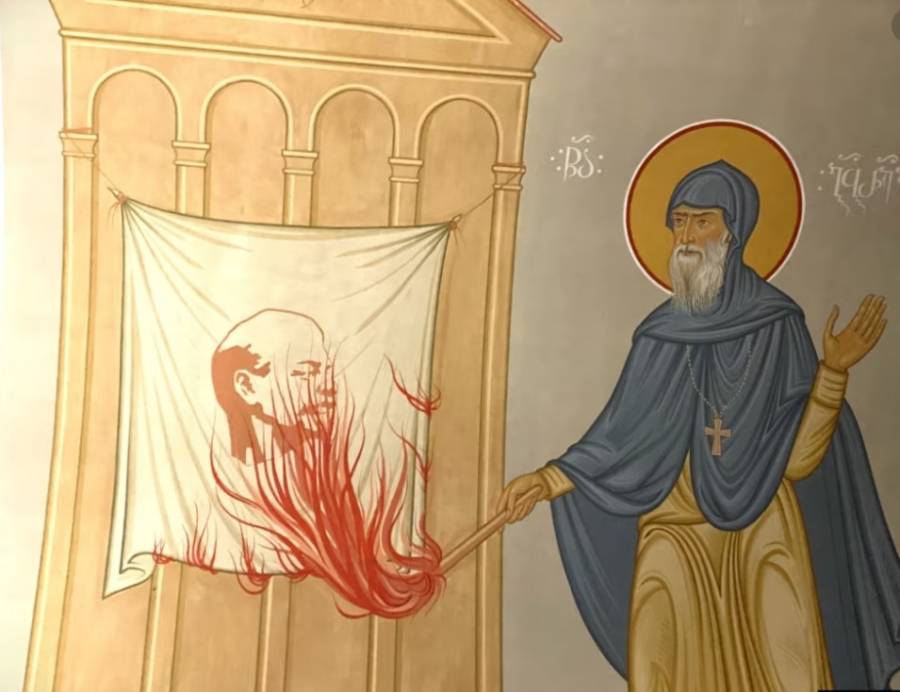
By Taras Dmytryk, Lviv, Ukraine
When we speak of the peace that comes down from heaven, we consider this peace to be the grace of God, given to us by God himself. “My peace I give to you” (John 14:27), says Christ.
However, how can we understand other words of Christ: “Do not think that I have come to bring peace. I have not brought peace, but a sword” (Matthew 10:34)?
In my personal conviction, these words refer primarily to the disciples of Christ who, under the cover of his name and teachings, instead of peace, bring a sword into the world, that is, wars, blood, murders.
In recent decades, we have observed how the regime of the Russian dictator Putin, under the cover of the ideology of the “Russian world”, actively promoted by the Patriarch of Moscow Kirill, regularly carries out military aggression against neighboring states. And it committed its largest and bloodiest aggressions precisely against two Orthodox Christian countries: in 2008 against Georgia, in 2014 against Ukraine, and even later in 2022 it began a large-scale military invasion of Russian troops into the territory of Ukraine. And for the third year, Ukrainians have been living under constant shelling, hundreds of thousands of soldiers and civilians have died, including 548 children.
How did the Russian Church start war propaganda and justifying massacres in the name of the illusory idea of the “Russian world”?
The beginning of this story lies in the distant 1943, when Joseph Stalin, having exterminated hundreds of real clergy (bishops, priests, deacons) – martyrs and confessors, created an appearance, a phantom of the Church, putting at its head clergy-collaborators obedient to the communist regime. Later, these clergymen-collaborators hid behind the ideas of the struggle for peace and participated in international meetings, where they promoted ideas beneficial to the Soviet government. It was at that time that a sad joke appeared in the Church that there would be no Third World War, but that there would be such a struggle for peace that not a stone would be left on stone. Metropolitan Nikodym Rotov, the spiritual father and head of the current Patriarch of Moscow Kirill Gundyaev, was also a member of this group of clergymen-collaborators. But if Nikodym Rotov acted under the cover of the ideas of the struggle for peace, Kirill Gundyaev today openly preaches the idea of a “holy war”, “all the soldiers who died in this war go to heaven”, etc. The Primate of the Orthodox Church of Finland, Leo, has openly said about the current state of Russian Orthodoxy:
“The family of Orthodox Churches is currently going through a crisis and is strongly divided. Our modern era has given rise to a new totalitarian myth and ideology under the guise of Orthodoxy, which in reality do not represent Christianity at all.
A few years ago, I still recognized some remnants of Orthodoxy within the Moscow Patriarchate, but they have now been replaced by a mixture of Russian messianism, Orthodox fascism and ethnophilia. The latter heresy mentioned was condemned by the Council of Constantinople 152 years ago.
Today, Russia considers itself the only force of Good in the world, whose task is to oppose the West that has sunk into Evil. This, in turn, represents the Manichean heresy, in which the world is divided into opposites: light and darkness, Good and Evil, etc.,” Metropolitan Leo stressed before the Council of the Church of Finland. (Orthodox Times)
So what should our Churches do to avoid the state in which the Moscow Patriarchate currently finds itself? Indeed, what our group EIIR-Synaxis has been doing for more than 50 years, the aim of which is to create friendly relations between representatives of different Christian Churches, in listening to each other and respecting others in their diversity.
This war could not have taken place if the Moscow Patriarchate had respected the right of others to be different. Mordvin ethnic Vladimir Gundyaev became Russian Patriarch Kirill and he feels like a Russian. This is the right of his personal choice. But why does he not respect the right of Ukrainians or Georgians to remain themselves? Today, Russia attacks Ukraine and other states of the post-Soviet space on three fronts: the Russian army, the Moscow Patriarchate and the propaganda of the ideas of the “Russian world”, born in the Russian Orthodox Church in the 1990s.
It should be noted that the Kremlin greatly overestimated the influence of the ideas of the “Russian world”, from which the inhabitants of the eastern regions of Ukraine quickly recovered, who saw that the “Russian world” is not literature, music and fine arts, but above all it is the bombings, especially also the churches and monasteries of the Moscow Patriarchate, the murders of civilians, the repression of the civilian population in the occupied territories, which they allegedly came to “liberate”. The Russian army showed its true face in Ukraine: executions of civilians, robberies and looting. In particular, during the short occupation, Russian soldiers ransacked the Roman Catholic seminary in Vorzel near Kiev, where they even stole washing machines and toilets and took them home through Belarus on their tanks. Abuse of prisoners of war, abduction of children and violations of all possible rules of war prompted the International Tribunal in The Hague to issue an arrest warrant for war criminals Vladimir Putin, Sergei Shoigu, Valery Gerasimov and others.
The war waged by Russia against Ukraine left behind a great collective trauma in Ukrainian society. This trauma will be healed for at least three generations:
– The first generation who directly survived the war and were physically injured or hurt;
– The second generation is the children of people who survived the war;
– The third generation – grandchildren, who will learn the truth from their parents and grandparents about the traumas experienced during the war.
Today, Ukrainian society is making its existential choice in favor of European values, rapidly freeing itself from pro-Russian influences. First of all, Ukraine is rapidly freeing itself from the influence of the Moscow Patriarchate, which preaches the “Russian world” instead of preaching the peace of Christ. This collective post-war trauma will contribute to the formation of its own identity, distinct from the Russian one.
Post-war Europe managed to establish a dialogue after the Second World War, aimed at promoting peace on the European continent. The Christian Churches did not remain aloof from these processes. As early as 1970, the Greek Orthodox Metropolitan Emilianos Timiadis and the Spanish Catholic priest Julián García Hernando initiated regular international interfaith meetings between representatives of various Christian Churches. And our French-speaking ecumenical group has been nourishing the idea of reconciliation and restoration of the unity of the Church for more than 50 years. It is hard work that requires a lot of effort from us, but we are here today so that no one will ever dare to call for war in the name of Christ.
N.B.: Sunday, July 7, 24, within the framework of the 39th “SYNAXE” MEETING, “Blessed are the peacemakers” (Mt. 5:9). Brâncoveanu Monastery, Romania (July 3-9, 2024), A round table took place on the trauma of the war in Ukraine. For Taras Dmytryk, the peace that comes from above is a grace given by God. But how can we put the beatitude of peace in connection with this other word of Jesus: “do not think that I have come to bring peace,” he asks? The ideology of the “Russian World” justifies these wars and Patriarch Kirill of the Russian Orthodox Church openly defends the idea of “holy war,” with Russia considering itself the force of good against the darkness of the West. (On the “Russian World”, see: https://desk-russie.eu/2024/05/12/le-monde-russe.html?amp=1).
Politics
Joe Biden Exits 2024 Presidential Race, Shaking Up U.S. Political Landscape
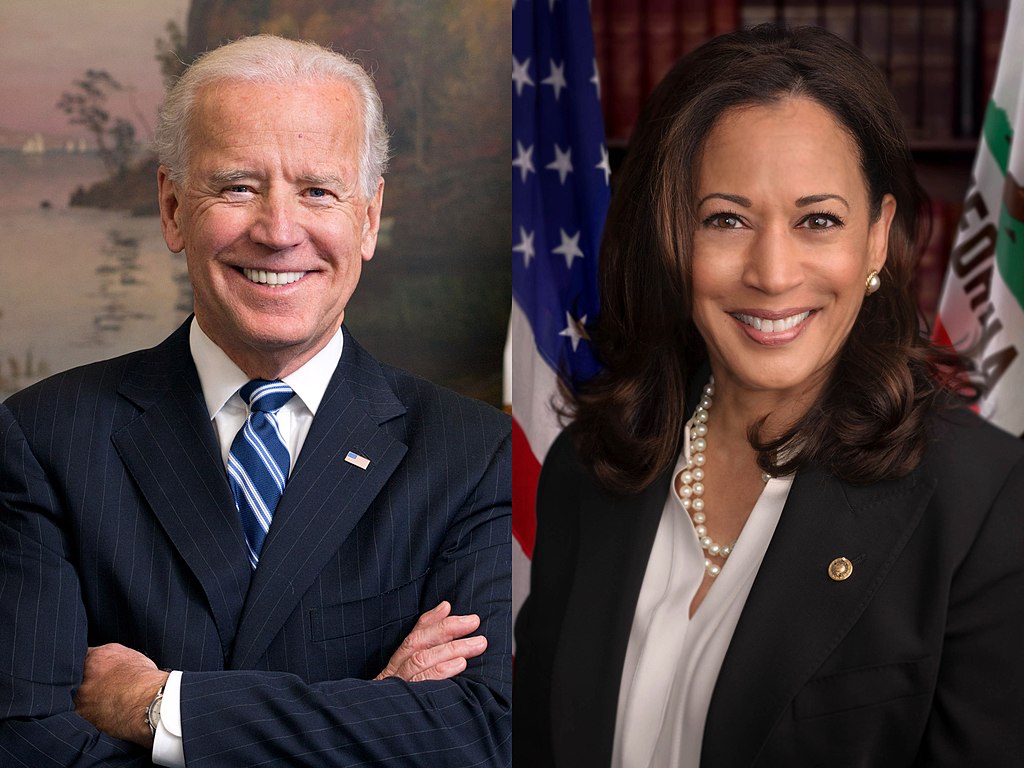
In a turn of events in American politics, President Joe Biden has announced that he will not seek re-election in 2024. His announcement, shared on the media this Sunday afternoon, gives Donald Trump a significant edge in the upcoming presidential race.
Concerns about Biden’s ability to lead another campaign at the age of 81 came to a head after a televised debate with Trump on June 27 during which Biden displayed signs of cognitive fatigue. Following this, prominent Democrats, including former President Barack Obama, openly called for Biden to step aside.
In a message posted online, Biden stated:
“Serving as your president has been the greatest honor of my life. And while it has been my intention to run for re-election, I believe that the best course of action for my party and the country is for me to step aside and focus solely on fulfilling my duties as President for the remainder of my term.”
Biden’s choice was also influenced by recent public blunders during events and appearances, such as at the NATO summit marking its 75th anniversary where he mistakenly referred to Ukrainian President Volodymyr Zelenskyy as “President Putin” and his own Vice President Kamala Harris, as “Vice President Trump.”
The pressure reached its peak when a notable opinion piece by George Clooney, a supporter of the Democratic Party was published in the ‘New York Times’ suggesting that Biden might face challenges in his race against time.
The situation became more complex when Biden tested positive for COVID-19, leading to his recovery at his home in Delaware. Despite plans by the Democratic Party to secure his nomination through a virtual vote before the Chicago convention, Biden eventually decided to step back.
Biden’s withdrawal has triggered discussions about who will succeed him. Vice President Kamala Harris appears to be a contender and could potentially make history as the first female President of the United States. Nonetheless, other notable Democrats like California Governor Gavin Newsom and Michigan Governor Gretchen Whitmer have also emerged as candidates.
This turn of events marks a moment in American politics as the Democratic Party faces uncertainty just months before the 2024 elections. The repercussions of this withdrawal could have far-reaching effects, on both the domestic political landscape and global power dynamics.
Politics
EU Calls for Renewed Commitment to a Unified Cyprus Amid 50th Anniversary of 1974 Division
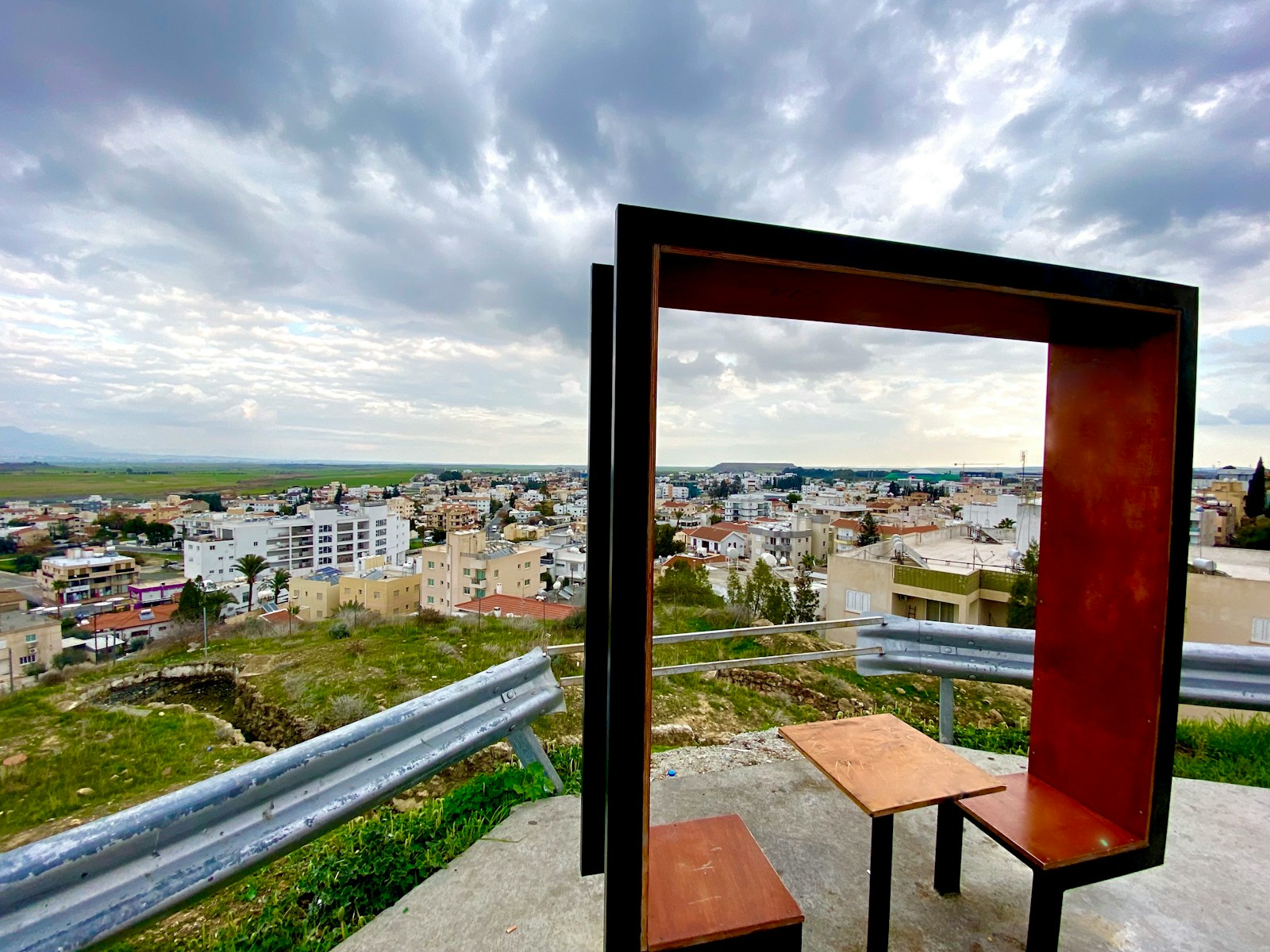
This week marks the solemn commemoration of the tragic events of 1974, a pivotal moment in Cyprus’s history that continues to reverberate half a century later. The European External Action Service (EEAS) has issued a poignant statement, underscoring the enduring need for a fair, comprehensive, and viable settlement to the Cyprus problem.
The Republic of Cyprus, an EU Member State, remains divided to this day—a division that has profound implications for its people. The EEAS emphasizes that this forced separation cannot be a lasting solution and that the hope for a unified Cyprus persists.
The statement calls for a renewed and genuine commitment from all parties involved in the United Nations-led efforts to resolve the Cyprus issue. This includes the two Cypriot communities and, notably, Türkiye. The EEAS stresses that a peaceful settlement must be based on the relevant UN Security Council resolutions, which provide a framework for negotiations.
In light of the broad geopolitical shifts and ongoing crises, the EEAS highlights the importance of collective effort to achieve a settlement. The goal is not only to benefit the people of Cyprus but also to ensure stability and security in the Eastern Mediterranean region.
The statement serves as a reminder of the urgency of the situation and the necessity for all stakeholders to engage constructively in the peace process. As the world commemorates the events of 1974, the call for unity and resolution is more pressing than ever.
The EEAS’s message is clear: too much time has been lost, and the time for action is now. The path to a unified Cyprus requires unwavering dedication and cooperation, promising a better future for all Cypriots and contributing to regional stability.
Politics
Statement by President von der Leyen at the joint press conference with President Metsola following the European Parliament Plenary vote
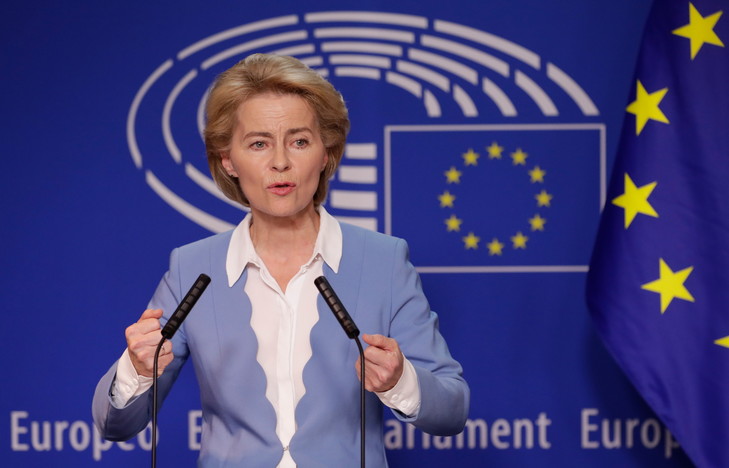
On the eve of a critical European summit, European Commission President Ursula von der Leyen delivered a pivotal speech addressing the continent’s pressing challenges and future direction. Speaking to an audience of policymakers, diplomats, and industry leaders, von der Leyen laid out the European Union’s strategic priorities, ranging from economic recovery post-pandemic to the urgent need for a unified stance on climate change and digital transformation. Her remarks, coming at a time of significant geopolitical upheaval, underscore the EU’s commitment to solidarity, innovation, and resilience in an increasingly complex global landscape.
Here it is:
Thank you very much, dear Roberta,
Good afternoon to everyone,
I guess you have heard my speech, and you might have read the Political Guidelines. So you can imagine that this is a very emotional and special moment for me now. I just want to make three very short remarks before moving on to your questions.
The first one is a more personal remark. I cannot begin without expressing how grateful I am for the trust and the confidence of the majority of the European Parliament. 401 votes in favour – you will recall that last time, it was 8 votes above the necessary majority. This time it is 41, so this is much better. This sends a strong message of confidence. I think it is also recognition for the hard work that we carried out together in the last five years in the last mandate. We have spared no effort. We have navigated the most troubled waters that our Union has ever faced. And we have kept the course on our long-term European goals. I also want to thank you, Roberta, the Group leaders of the democratic forces in the Parliament and all the MEPs for the excellent cooperation including during the last mandate but also for the very substantial exchanges we have had over the past two weeks – after the elections and over the past two weeks. I think this is a very good foundation for the next five years. And I think this was tangible in the debate today.
Second, I want to highlight that I was very happy to have the opportunity to carry out a real, pan-European electoral campaign. As you know, it brought me from Helsinki to Lisbon, from Bucharest to Rome and many different places. I engaged with people from all walks of life. And I enjoyed taking part in the series of TV debates that we had with the other candidates. I think this makes our European democracy much more vibrant.
And finally, let me walk you briefly through the next steps. I will now focus on building my team of Commissioners for the next five years. In the coming weeks, I will ask Leaders to put forward their candidates. I will – as I did last time – write a letter and ask for the proposal of a man and a woman as candidate. The only exception is, like last time, when there is an incumbent Commissioner who stays. And then, I will interview the candidates as of mid-August, and I want to pick the best-prepared candidates who share the European commitment. Once again, I will aim for an equal share of men and women at the College table. The new team will get ready to successfully pass the Parliament hearings. And then I will again seek the confirmation of this House.
Thank you very much.
-
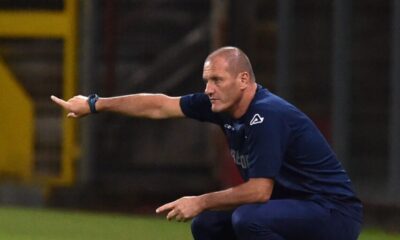
 Sports6 days ago
Sports6 days agoBari still knocked out and last, Modena gets unblocked
-

 Health & Society4 days ago
Health & Society4 days agoThe intoxicated society
-
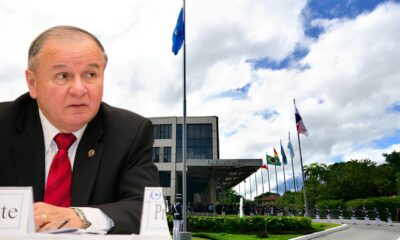
 Politics5 days ago
Politics5 days agoElias Castillo: A Stalwart of Latin American Legislative Leadership
-
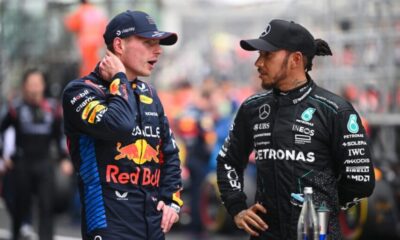
 Sports6 days ago
Sports6 days agoMax Verstappen worried, Lewis Hamilton laughs it off
-
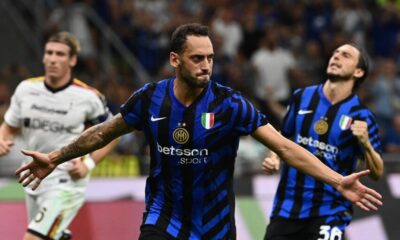
 Sports5 days ago
Sports5 days agoInter on autopilot, everything easy with Lecce
-
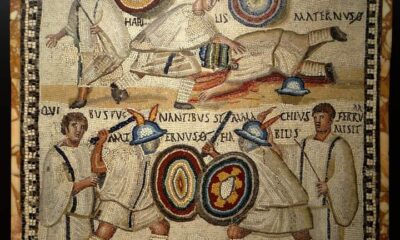
 Health & Society6 days ago
Health & Society6 days agoReligious fundamentalism as psychosis
-
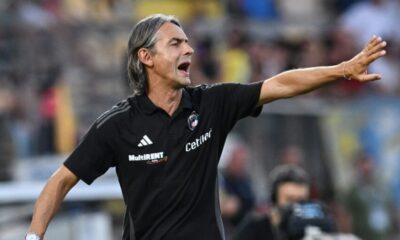
 Sports5 days ago
Sports5 days agoFilippo Inzaghi enjoys his Pisa
-
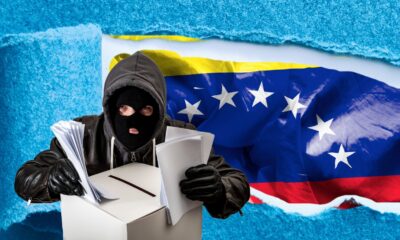
 Politics5 days ago
Politics5 days agoOAS Report Shakes Venezuelan Election Results: Trust in Democracy Eroded









